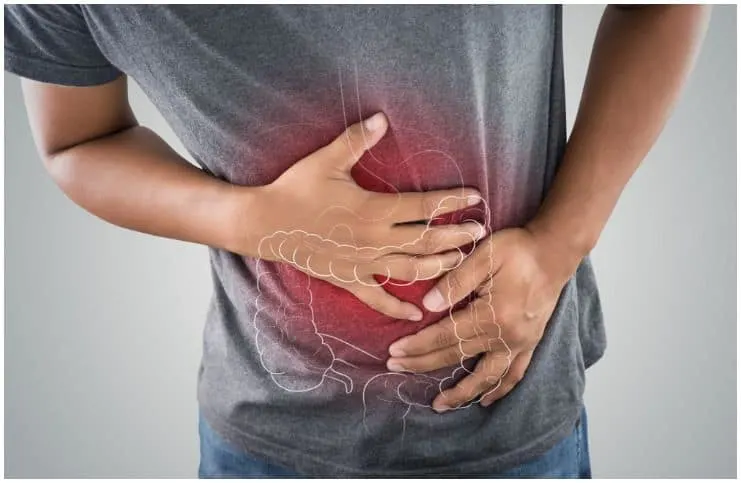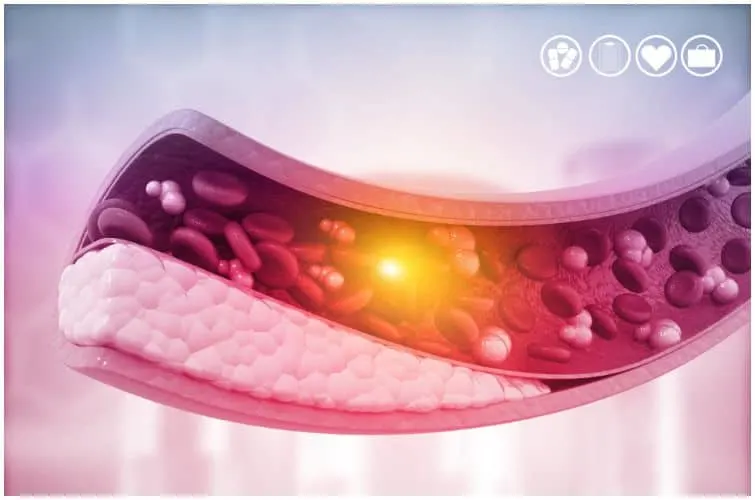Dates vs Raisins – Comparison of Nutrition Facts & Health Benefits:
Introduction
When it comes to natural sweeteners, two of the most popular options that come to mind are dates and raisins.
These dried fruits are not only delicious but also packed with a wide array of nutrients, making them a healthy choice for those with a sweet tooth. However, while they may appear similar in many ways, there are distinct differences between dates and raisins, from their nutritional content to their health benefits.
Whether you’re a fan of dates, raisins, or both, this comprehensive guide will provide you with an insight into what each of these fruits has to offer.
Dates
They are tropical stone fruits that come from the date palm tree.
Dates are potent aphrodisiac, tonic, nutritive, laxative fruits.
These fruits can be eaten fresh; however, dates are more commonly dried and eaten as is.
Raisins
Raisins are dried grapes. The grapes are dried using two methods – mechanical dehydration and sun drying.
They are made from three varieties of grapes:
- Muscat;
- Zante;
- Thompson seedless.
Packed with essential minerals, vitamins, and antioxidants, raisins are used in a variety of cuisines throughout the world in both savory and sweet dishes.
Nutrition Facts
100g of dates contain:
- 277 calories;
- 6.7g Fiber – 27% daily value;
- 1.8g Protein – 4% DV;
- 149IU Vitamin A – 3% DV;
- 2.7mcg Vitamin K – 3% DV;
- 0.1mg Thiamin – 3% DV;
- 0.1mg Riboflavin – 4% DV;
- 1.6mg Niacin – 1.8% DV;
- 0.2mg Vitamin B6 – 12% DV;
- 15mcg Folate – 4% DV;
- 0.8mg Pantothenic Acid – 8% DV;
- 64mg Calcium – 6% DV;
- 0.9mg Iron – 5% DV;
- 54mg Magnesium – 14% DV;
- 62mg Phosphorus – 6% DV;
- 696mg Potassium – 20% DV;
- 0.4mg Zinc – 3% DV;
- 0.4mg Copper – 18% DV;
- 0.3mg Manganese – 15% DV.
100g of seedless raisins contain:
- 299 calories;
- 3.7g Fiber – 15% daily value;
- 3.1g Protein – 6% DV;
- 2.3mg Vitamin C – 4% DV;
- 0.1mg Vitamin E – 1% DV;
- 3.5mcg Vitamin K – 4% DV;
- 0.1mg Thiamin – 7% DV;
- 0.1mg Riboflavin – 7% DV;
- 0.8mg Niacin – 4% DV;
- 0.2mg Vitamin B6 – 9% DV;
- 5mcg Folate – 1% DV;
- 0.1mg Pantothenic Acid – 1% DV;
- 50mg Calcium – 5% DV;
- 1.9mg Iron – 10% DV;
- 32mg Magnesium – 8% DV;
- 101mg Phosphorus – 10% DV;
- 749mg Potassium – 21% DV;
- 0.2mg Zinc – 1% DV;
- 0.3mg Copper – 16% DV;
- 0.3mg Manganese – 15% DV;
- 0.6mcg Selenium – 1% DV.
Health Benefits
Dates
Potassium
It is the third most abundant mineral in the human body and a needed mineral for the functioning of a few organs, including the kidneys, brain, heart, and muscular tissues.
This essential mineral works with sodium in all cells, including at nerve synapses, to help in metabolic processes and to restore or maintain membrane potentials.
It also restores alkaline salts and neutralizes acids in the bloodstream.
Moreover, its presence is vital to:
- regulation of cholesterol production;
- creation of RNA and DNA;
- production of enzymes, proteins, and antioxidants;
- glucose and fat breakdown.
The recommended daily amount of potassium is 4.7 grams per day.
But, according to statistics, the median intake of potassium by American adults is about 2.2 to 2.4g a day for women and 2.8 to 3.3g a day for men.
100g of dates contains 696 mg of potassium.
Manganese
It has the following functions and roles in the body:
- involved in superoxide dismutase;
- essential for energy production;
- important for the utilization of fats and carbohydrates;
- involved in glucose tolerance;
- required for thyroid gland activity;
- synthesis of neurotransmitters;
- essential for arterial integrity;
- helps maintain the integrity of ligaments and tendons.
Collagen is a protein important for acne as it is the number one structural protein in the skin.
However, without Mn, the chain reaction of collagen creation is cut off.
Signs and symptoms of Mn deficiency include:
- defects in lipid and carbohydrate metabolism;
- ataxia (a neurological sign consisting of a lack of voluntary coordination of muscle movements);
- impaired reproductive performance;
- skeletal abnormalities;
- impaired growth.
100 grams of dates have 0.3 mg of Manganese which is about 15% of the daily recommended intake.
ALSO READ: Figs vs Prunes
Copper
Copper is a trace mineral that helps keep the nerves, immune system, blood vessels, and bones healthy.
Also, in conjunction with iron, it helps the body form red blood cells.
This mineral also assists in:
- synthesis of hormones;
- reproduction;
- myelination of the brain and spinal cord;
- energy transformation;
- defense against oxidative damage;
- blood pressure control.
Symptoms of a copper deficiency include:
- skin inflammation and sores;
- fatigue;
- bruising;
- arthritis;
- unexplained weight loss;
- osteoporosis;
- hair thinning or balding;
- paleness;
- a stunt in growth;
- joint pain;
- muscle soreness;
- frequently getting sick;
- brittle bones;
- anemia;
- low body temperature.
100 grams of dates have 0.4 mg Copper, which is about 18 percent of the daily recommended intake.
Fiber
Dietary fiber includes all parts of plant foods that the body can’t digest or absorb.
There are 2 types of fiber:
- Insoluble fiber – it helps to bulk up stool volume and improve motility;
- Soluble fiber – it is viscous and fermentable.
Dietary fiber is renowned for doing a few key things:
- it can bind to and lower LDL and total cholesterol;
- it slows the absorption of food leading to improved blood glucose control;
- it promotes ”regularity.”
100 grams of dates have 6.7 grams of fiber that is approximately 27 percent of the daily recommended intake.
ALSO READ: Powerade vs Gatorade
Raisins
Iron
Iron is an essential mineral found naturally in different types of food.
There are two main types of iron – non-heme and heme:
- Non-heme iron has an absorption rate of 2-20 percent and is found in antioxidant-rich plant foods;
- Heme iron has an absorption rate of 7-35 percent and is found in animal meat.
Iron assists in cell respiration and energy production, while also helping the central nervous and immune systems.
But, the main purpose of iron is to help in the transportation and storage of oxygen.
100 grams of raisins have 1.9 mg of Iron that is about 10 percent of the daily recommended intake.
Vitamin B6
Vitamin B6 is a member of the B vitamins and plays a vital role in numerous metabolic processes in the body.
It is involved in maintaining a normal level of homocysteine in the blood as well as it helps form hemoglobin.
100 grams of raisins have 0.2mg vitamin B6 that is approximately 9% of the daily recommended intake.
ALSO READ: Cream of Tartar (Potassium Hydrogen Tartrate) – Poisoning
Magnesium
Magnesium is thought to be one of the most important minerals we need.
For instance, it stimulates brain function and the transmission of nervous impulses.
It also helps get rid of acidic buildup in the kidneys.
Deficiency symptoms and signs include:
- high blood pressure;
- fatigue;
- sugar cravings;
- irritability;
- restlessness;
- nervousness;
- osteoporosis;
- kidney stones;
- loss of appetite;
- insomnia;
- weakness;
- muscle cramps.
100 grams of raisins have 32 mg of Magnesium which is 8 percent of the daily recommended intake.
Phosphorus
Phosphorus is an essential mineral that is involved in energy production and protein synthesis within the cell.
Additionally, phosphorus is a key player in calcium regulation, making it important for healthy teeth and strong bones. It also assists in muscle contraction.
100 grams of raisins have 101 mg Phosphorus which is 10 percent of the daily recommended intake.
Taste
Dates taste like a cross between a prune and a fig. Raisins have a sweet taste, which is characteristic of raisins.
Dates vs Raisins – Substitute
If you don’t have or don’t wish to use raisins in a recipe, you can substitute them with dates.
Images source – Shutterstock
ALSO READ: Apple Cider Vinegar Enema – Side Effects
Sources https://www.ncbi.nlm.nih.gov/pubmed/22214443 http://jmrh.mums.ac.ir/article_2772.html https://www.sciencedirect.com/science/article/pii/S1658077X15000442 http://journals.plos.org/plosone/article/file?id=10.1371/journal.pone.0190210&type=printable
